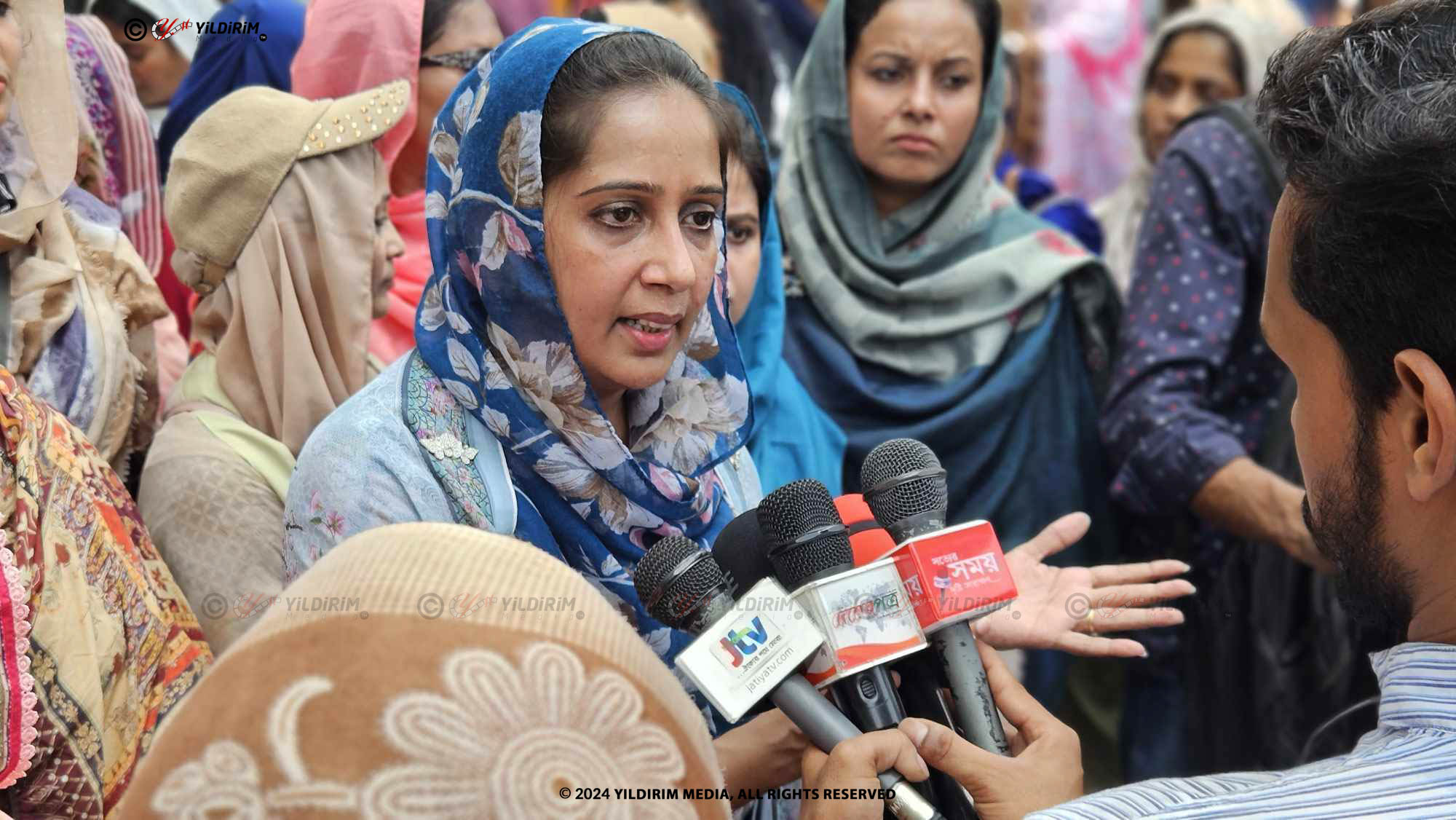One of the accusations made by critics of Islam is that it encourages and establishes a system of slavery, treating people as slaves. They claim that Islam promotes and institutionalizes servitude, using war captives as slaves, and so on. Over the past few centuries, this group of Islam critics has been presenting Islam as a religion that is inherently oppressive and supportive of slavery. To accomplish this, they have not only distorted the history of Islam but also selectively used fragmented portions of the Quran while mistranslating and misinterpreting it. By doing so, they have attempted to establish Islam as a religion that creates a system of slavery. However, Islam did not create a system of slavery; rather, it came to abolish inhumane practices and traditions, including the system of slavery itself. This fundamental truth may not be clear to many of us.
The most unfortunate aspect is that this group of Islam critics has been making baseless accusations and providing flawed interpretations regarding Islam, spanning centuries. Our group of scholars and religious authorities have been unable to provide a logical response to these allegations and refute their false interpretations. Instead, they reluctantly accept the claim that “slavery exists in Islam, but Islam has provided many opportunities and benefits to slaves.” They present weak arguments and try to save themselves from the hands of Islam critics. They even justify the necessity of the institution of slavery. However, the Quran distances itself from supporting slavery and provides numerous verses advocating for the liberation of slaves. Many argue that Islam allows the use of war captives as slaves, but this is also completely untrue.
In Surah Muhammad (47:4), The Almighty states, “When you encounter the disbelievers in battle, strike their necks until you have defeated them, and then bind them firmly. Afterward, release them as a favor or let them go for a ransom until the war lays down its burdens. That is Allah’s command; He could have defeated them Himself, but He lets you fight in order to test some of you through others. As for those who are killed in the cause of Allah, He will never let their deeds go to waste.” In this Ayaat, Allah (S.W.T) has provided 2 options for the Mujaheeds, regarding war prisoners; It is either necessary to show them favor and release them unconditionally or to obtain a ransom in exchange for their release. It is forbidden to keep them as slaves.
Islam critic writer M.A Khan, in his book “Islamic Jihad” mentions that in Ancient Greece, the city-state of Athens had around 4,600 enslaved individuals in contrast to just 2,100 free citizens. In ancient Rome, during the early republic and the Roman Empire, approximately 15 to 20 percent of the population consisted of enslaved individuals. In ancient China, emperors had thousands upon thousands of enslaved individuals assigned to their luxury and service. The majority of enslaved individuals were born into slavery through their enslaved mothers. During the Middle Ages, the institution of slavery in Europe was accepted and approved religiously.
During the reign of Emperor Flavius Gratianus in the year 375 AD, an ordinance was issued regarding slaves. According to this ordinance, if a slave accused their owner of a crime, the slave would be put to death. Throughout history, victorious groups have sometimes conquered weaker groups and turned them into slaves or engaged in the trade of selling humans from impoverished or defeated nations. Through this commerce, individuals were permanently transformed into the permanent property of another person, thereby perpetuating the system across generations.
To describe the inhumane and horrific conditions slaves had to survive in would take thousands of pages so I will not divulge into that. However, I can state that slaves were considered as the lowest beings with minimal fundamental rights or the necessary provisions for survival. Their very existence, including the freedom to breathe largely depended on the whims of their owners. They were not counted as human beings but rather occupied a position lower than animals.
Returning to the main discussion, when the final Messenger of Allah (S.A.W) emerged in Arabia, there was a significant slave trade existing even among the Arabs. Slavery was a substantial part of Arabia’s commercial system.
Since various caravans of different countries had to pass through Mecca, it was also a major center for the slave trade. The practice of slave trading was prevalent in Mecca as well. However, after the advent of Islam, the Messenger of Allah (S.A.W) took a firm stance against this system of slavery, advocating for equality among people, denouncing discrimination, oppression, injustice, and exploitation of the weak. Although it was not possible to abolish a social institution that had developed over hundreds of years in a single day, efforts were made to gradually eradicate the mentality of slavery embedded within the society, ensure the rights of slaves, recognize them as human beings, and bring about changes in the relationship between slaves and their owners. The mindset ingrained in the institution of slavery, which had seeped through the cracks of society through generations, was not easily eliminated. The task of dispelling the mentality of slavery, securing the rights of slaves, assessing their worth as human beings, and transforming the relationship between slave and master was not an easy one.
During the time I am referring to, Arab society was deeply immersed in ignorance, illiteracy, unawareness, superstition, and immoral practices. From such a society, uniting people against the institution of slavery, fundamentally uprooting the system of slavery, and waging a war against it was a tremendous challenge. But it was one our Messenger (S.A.W) fiercely took on.
The first step towards the abolition of the practice of slavery was taken by Muhammad (S.A.W) himself, right from his own home. When Ummul Mu’mineen Aisha Khadijah (R.A) married the Messenger (S.A.W), she employed a slave named Zaid ibn Harithah (R.A) to serve her. However, even after being freed from slavery, Zaid (R.A) chose not to leave the company of the Messenger (S.A.W). He was content with staying by the Messenger (S.A.W)’s side. When Zaid’s (R.A) biological father and uncle came searching for him, they found him in the presence of Muhammad (S.A.W).
Muhammad (S.A.W) said, “He is free now, you may take him if you wish.” However, Zaid (R.A) expressed his contrary desire. He said to his father and uncle, “You may go back, I will not go. I want to stay with him.”
This incident exemplifies the behavior of Muhammad (S.A.W) towards a slave, where even after being freed from slavery, one slave willingly chose to remain in the companionship of the Messenger (S.A.W ), considering it the highest honor in life. It is evident that the conduct of Muhammad (S.A.W) towards Zaid (R.A) was not that of a master to a slave. In essence, his behavior towards the Muhammad (S.A.W) was equal to that of a beloved child. Therefore, he was profoundly captivated by the character and conduct of the RasullAllah (S.A.W), and his faith in him was so unwavering that until the last day of his life, he remained a devoted follower of the Messenger (S.A.W) in both his actions and demeanor.
The second incident that everyone knows about during the caliphate of Omar (May Allah be pleased with him) is his administration of Jerusalem. Omar (May Allah be pleased with him) was going to Jerusalem for state affairs. The distance from Medina to Jerusalem was approximately 1,300 kilometers, most of which was a desert region. During this long journey, Omar (May Allah be pleased with him) was accompanied by a servant who is mentioned in history as a slave. But the way Omar (May Allah be pleased with him) treated him raises the question of whether it aligns with the concept of slavery. Omar (May Allah be pleased with him) rode on the same camel with his servant throughout the entire journey and even made the servant ride the camel for some parts, holding the reins of the camel and walking ahead. These two incidents are sufficient to understand how Islam has bestowed the dignity of a brother upon a servant.
Islam believes in voluntary servitude and advocates for the abolition of slavery. However, after approximately 60-70 years following the departure of the Last Messenger (S.A.W) when the true beliefs of Islam were lost within the Ummah and the focus and objectives of the nation were forgotten, the rulers of the community disregarded their responsibilities of establishing worldly justice, righteousness, peace, and equality. They indulged in expanding their empires and indulging in luxury and extravagance. The rulers revived the system of slavery in pursuit of their own pleasure and comfort, plunging society back into the era of Jahiliyyah (ignorance). The Messenger (S.A.W) fought throughout his life to eradicate this system of servitude, to ensure equal rights for all human beings. He fought against the entire social structure, and after the Ummah deviated from its path, Muslim rulers again engaged in the buying, selling, and exploitation of slaves. They initiated discussions on slavery, slave trade, and slave investigation after losing their identity as a nation. They forgot that every human being is a child of the same parents. However, since they held the title of Muslim rulers in name and identity, all these atrocities were attributed to the practices of Islam, tarnishing the image of Islam and falsely accusing it of perpetuating the stigma of slavery. It is important to clarify that Islam is the divine command of Allah (S.W.T) and the exemplary life of The Messenger, Muhammad (S.A.W).
–
In the future, whoever adopts a Muslim name and engages in any wrongdoing, Islam cannot be held responsible for their actions. Similarly, the discussion of slavery by deviant Muslim rulers does not impose any blame on Islam. There are countless examples to understand that Islam is the eradicator of the system of servitude. Here, I have mentioned only two examples. Therefore, those who try to diminish Islam and falsely attribute the stigma of slavery to Islam tarnish its image unjustly.




